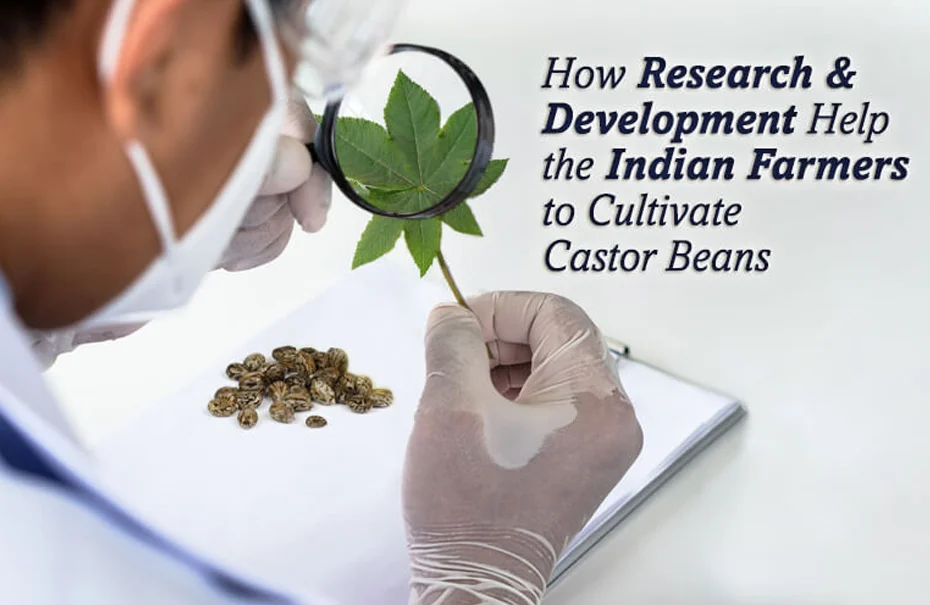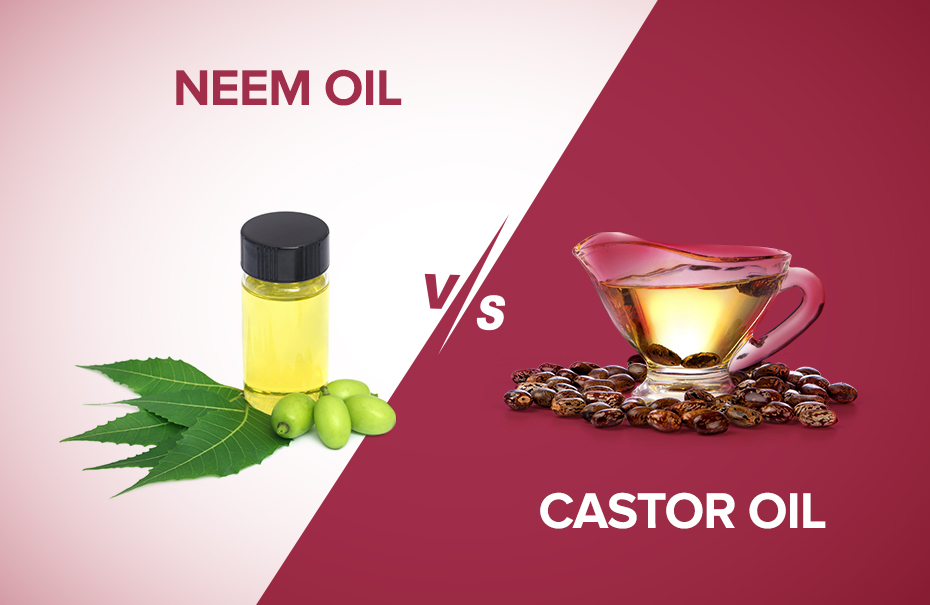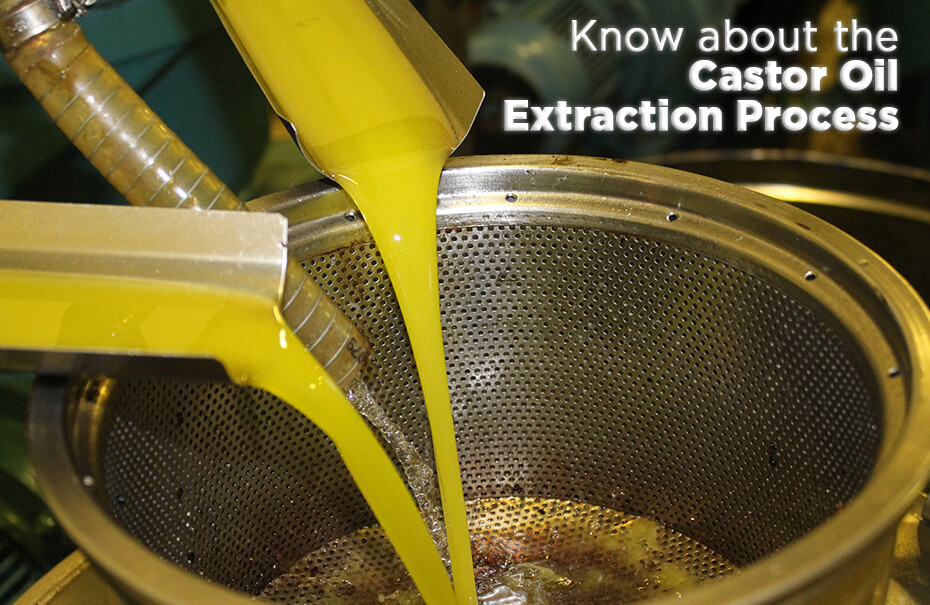How Research and Development Help the Indian Farmers to Cultivate Castor Beans?

Agriculture- The Backbone of Our Nation
Agriculture, without a doubt, is a vital part of India’s economy. As per the 2018 statistics, agriculture contributed 17-18% of the total Gross Development Product (GDP). The sector is highly multidimensional and provides employment to approximately 41.49% of the workforce.
Agriculture along with its allied sectors stands out as the largest source of livelihood. Farming and other closely related sectors feed a population of more than 135 crores reading in our country. India is also the largest producer of pulses, jute, castor, sugarcane and other agricultural products all over the world. It is quite clear as a crystal that the share of importance agriculture has in India and all over the world comes with a lot of responsibility. Therefore, it becomes quite crucial that intensive research and development is carried out in this sector for enhancing the production, technology and infrastructure.
Importance of Research and Development
Research and development are considered to be important branches. It helps in expanding and elevating the infrastructure and technology directly linked to agricultural growth. There has been much evidence that showcases that investment in research and development has increased agricultural productivity over the decades.
The research and development discipline encompasses various activities. These consist of developing hybrid seeds with added nutrients, improved potential to yield, and increased tolerance to drought and similar other natural calamities. Developing new animal vaccines, better fertilizer for use, are some of the other key aspects of research and development.
Noteworthy advancement has been made in seed development that has generated massive social benefits. During the ‘Green Revolution,’ the high yielding seed varieties were often credited for saving a large population of people from famine. Research and development offer a potential opportunity to curb the high hunger and food crisis in India.
1. Modification of Seed
Certain genetic modification in seeds leads to high productivity with minimal use of resources. These high yield seeds that are a product of well-researched genetic engineering are now widely accepted among the farming fraternity. Nowadays, hybrid seeds are flourishing in the Indian market especially oilseeds, pulses, vegetables, etc. Bt-cotton is one of the remarkable examples of the same technology.
2. Pesticides and Fertilizers
Ensuring the right kind of fertilizers and pesticides with a proper quality check is important for a healthy crop. It is also very crucial to maintain the right balance between promoting generic agrochemicals that already exist in the market and innovate new agricultural products that bring about a productive change.
The Indian government has set up 71 pesticide testing laboratories, which were later joined by various private firms. These keep a check on quality assurance research, manufacturing process, and production of agrochemicals.
3. Water Management
Water is an imperative part of agriculture. With unpredictable monsoon cycles, it is not wise to only depend on them. This is how irrigation came into the picture. With area-specific research and development, advanced irrigation technology, and effective water management farmers can increase productivity around the year.
Let us now have a closer look at how research and development helped prosper the cultivation of castor beans.
Castor Bean Cultivation
Castor Seed (Ricinus Communis) is also popularly known as Palm of Christ. These beans when ripped can be used to produce oil. These oils are useful for various purposes and have been used for a long time. The presence of ricinoleic acid makes castor oil distinguished from other categories of vegetable oils. It is thick in nature and can be amended for several uses.
As mentioned earlier, India is the largest producer of castor seeds and one of the largest castor oil manufacturers. The major castor producing states are Gujarat, Rajasthan, and Andhra Pradesh. These states together produce ninety percent of the total domestic production. Among these, Gujarat is the largest castor oil manufacturer in India.
Different projects have been carried out to increase the production of castor seeds. Solvent Extractors’ Association of India (SEA) had earlier launched a pilot project intending to improve the yield of castor seed in two major districts of Gujarat. The other objective was to reduce the usage of water, fertilizers, pesticides, and cut the cost of cultivating castor seeds.
Sardarkrushinagar Dantiwada Agricultural University guided the farmers through the process of how to use the seeds and increase productivity. The university provided castor seeds, fertilizers, pesticides along with other important instruments required for the pilot project. They taught them the new way to sow the respective seeds that will initiate improved growth of the seeds. Weekly surveys were also carried out by the researchers, in order to understand the progress and status of the pilot study.
The new high-quality seeds can be cultivated in a reduced patch of land and still be able to get higher yields. In 2016, the Castor Seed growth in the country was approximately 1,200 kg to 1,400 kg per hectare. On the other hand, the potential of the new hybrid seed was to produce over 2,000 kg per hectare, provided the correct methods of growing are used.
According to a survey carried out by Agriwatch, commissioned by SEA, Castor seeds were projected to grow by 88 percent in the year 2019-20. Gujarat, the leading producer of Castor seed and castor oil products was estimated to grow 1.744 tonnes in the same year, which is an estimated growth of 96 percent.
Castor remains to be one of the oldest cultivated crops of great importance in the global chemical industry as it is the only prominent source of fatty acid. With a tremendous future forecast of Castor as an agricultural product, extensive investment in research and development can further boost the productions.
One of the leading examples of castor oil manufacturers in India is Ambuja Solvex Pvt. Ltd. that meets the global demand for castor oil derivatives. With its wealth of knowledge and consistent quality, it is offering the world the best castor products at an affordable price.



